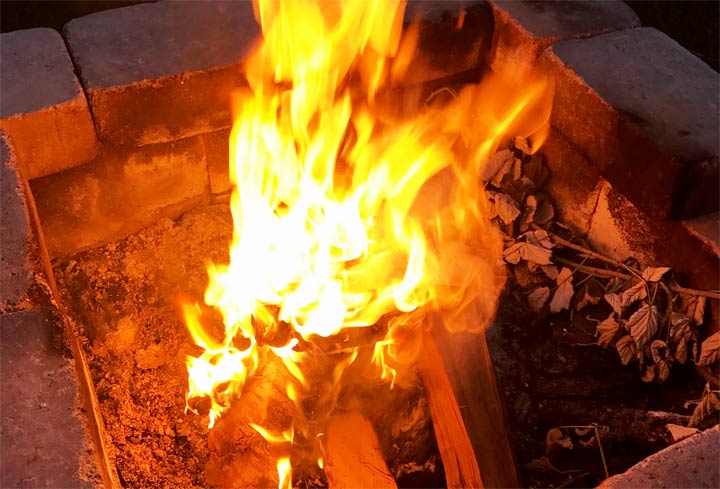The Saskatoon Fire Department‘s safety theme for May is focused on the responsible and respectful use of fire pits.

City council passed a bylaw Monday, limiting open-air fires to the hours of 2 p.m. to 11 p.m. CT, which will be enforced by the fire department.
Here are tips from the fire department on the safe and courteous use of fire pits.
Burn responsibly
Fire containers must be constructed of cement, brick or of at least 18-gauge metal.
Burn only dry, seasoned cord wood or charcoal briquettes and don’t use firewood from different locations – to prevent the spread of unwanted pests and Dutch elm disease. Burning elm branches is not permitted.
Open-air fire boxes cannot have a dimension greater than 0.61 metres or 24 inches.

Get breaking National news
Barbecue grills and smokers used for food preparation may be used at any time.
WATCH: Spring weather creating challenges for Saskatoon emergency crews

Burn respectfully
Nuisance smoke from outdoor fires can negatively affect the health of some people.
People must extinguish open-air fires by 11 p.m., in line with noise bylaw 8244.
The following items are not permitted to be burned in backyards:
- rubbish;
- garden/yard waste;
- plastic;
- manure;
- livestock or animal carcasses;
- insulation;
- electrical wiring or equipment;
- asphalt roofing materials;
- hydrocarbons;
- rubber materials; and
- painted or creosoted wood.
Consider a cleaner burning alternative such as a natural gas or propane fire pit.
Fire department officials recommend communicating with neighbours who may be adversely affected by open-air fires and letting them know when an outdoor fire is planned.
Burn safely
Open-air fire pits should be positioned at least three metres away from combustible structures, and even further if there are overhanging soffits or branches.
Cover fires with a protective mesh spark screen with openings no larger than 13 millimetres or half an inch.
Supervise fires at all times, and always have water on hand for putting it out when finished – which is also handy in case of an emergency.
Outdoor fires should not be lit when the wind is over 15 km/h.


Comments
Want to discuss? Please read our Commenting Policy first.